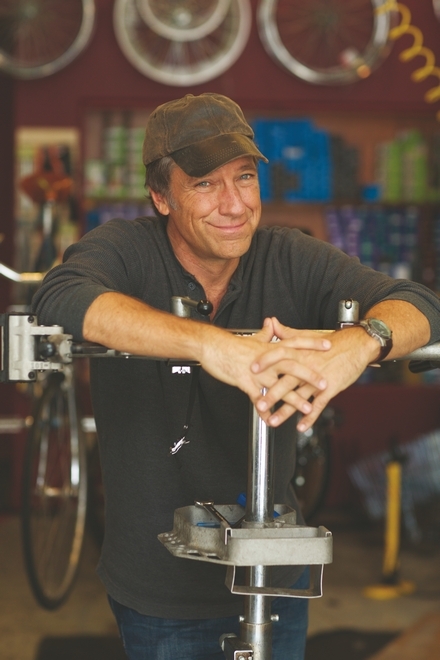
Well, that figures, I thought Friday afternoon.
I was waiting at my desk phone patiently around 12:30 p.m., waiting for a call that took 38 days to materialize, from my initial email to the Detroit Regional Chamber on April 14 until then.
Mike Rowe — former host of the Discovery Channel’s popular “Dirty Jobs” show and currently the host of “Somebody’s Gotta Do It” on CNN — was supposed to ring me up for a chat about skilled trades in advance of his keynote address on Mackinac Island on the subject as part of the chamber’s Mackinac Policy Conference that begins tonight.
Ten minutes. Fifteen minutes. Twenty minutes. Still no ring.
Damn.
Thankfully, it seems like it was a mere a time zone confusion (he lives in San Francisco) that got the better of us. So at 3:30 p.m. Friday, he called, eager to talk about what has become the issue on which he has emerged a champion.
Everyone from Gov. Rick Snyder on down knows that there is a shortage of people to fill skilled-trades positions in Michigan — jobs like carpenters, machinists, welders, plumbers, elevator installers and repairmen, electricians, etc.
A huge part of that is due to a cultural stereotype of those as “dirty jobs,” Rowe said.
As the economy continues to become more “knowledge-based,” many parents and kids are viewing those careers as being dead-end, low-paying and generally less respectable than a career, for example, in a STEM field. That’s dissuading people in my generation (I’m 32) and younger from entering those career paths.
Add to that an aging population and we have a real problem on our hands.
Data linked to in a 2013 Forbes article from Economic Modeling Specialists Intl. shows that in 2012, 54.3 percent of the 140,200 skilled-trades workers in Michigan were over age 45. Over 19 percent of the state’s skilled-trades workers were over 55 back then.
While a changing, evolving economy is a great thing, that doesn’t mean we don’t need people to fix our toilets or circuit breakers, or solder or install hardwood floors. Demand for those jobs always has been and always will be there, Rowe said.
Rowe, who has testified about skilled trades before committees in both chambers of Congress, said part of what’s needed to address the shortage in America is a blistering public relations campaign.
“There were decades of portrayals of tradesmen not in an aspirational way,” he said. “But you don’t change the way a whole country feels about those jobs overnight … It takes decades. Most PR sucks. It sounds and feels fake, sounds like it’s managed by a big company or feels like it’s been focus-grouped. And we have become very adept at identifying bullshit.”
Rowe noted the 1971 Keep America Beautiful anti-littering advertising campaign featuring Iron Eyes Cody crying. That, he said, also took years to take foothold in the American psyche.
Read the complete article at crainsdetroit.com
